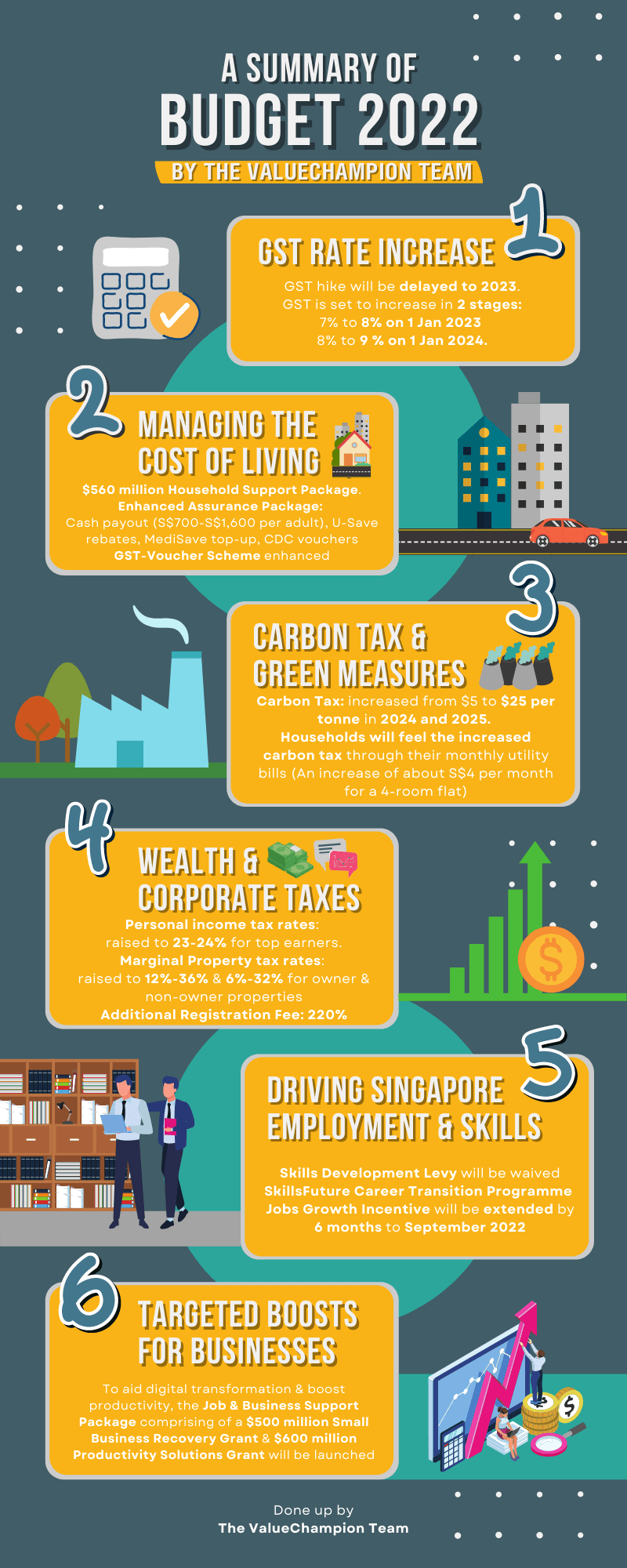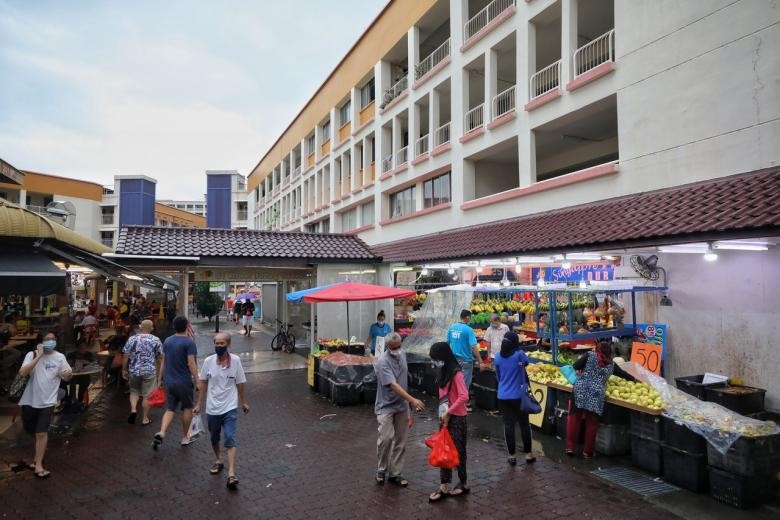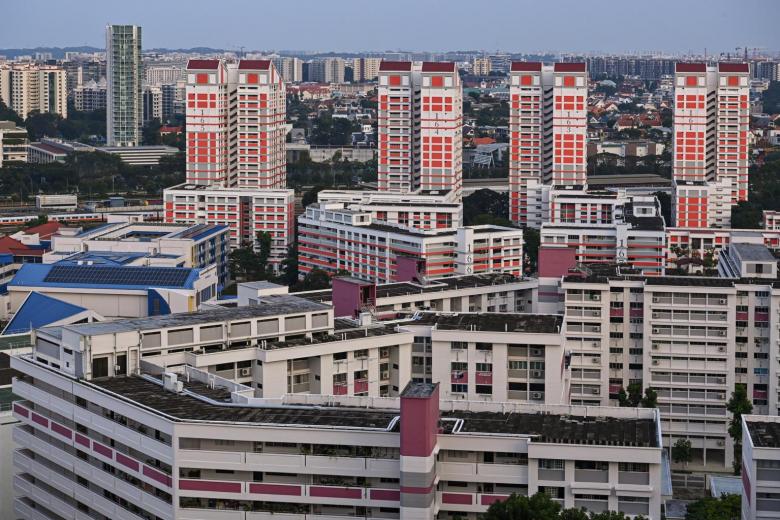Singapore has had a tough two years due to the global pandemic. The economy went into a recession, people lost their jobs and now, we are in the process of recovering from the financial impact of Covid-19.
Which is why Feb 18, 2022 is such an important day.
Will the GST Hike still happen as per scheduled? Will there be more help available for businesses and individuals still struggling to survive? And more importantly, what's the GST-Voucher scheme looking like this year?
Read on to find out seven important stats and figures that Budget 2022 has in-store for people in Singapore:

1. Gst rate increase: 7 per cent to 9 per cent over two years
- The GST hike will be delayed for a year until 2023.
- There will be a GST hike from 7 per cent to 8 per cent on Jan 1, 2023.
- The GST will further increase from 8 per cent to 9 per cent on Jan 1, 2024.
2. Managing the cost of living: $560 million household support package

- Households will receive double the utility rebates for the rest of 2022. Eligible households will receive an additional $285 of these rebates.
- Families with children below the age of 21 will receive an additional $200 in every child’s Child Development, Edusave or Post-Secondary Education Account.
- Every Singaporean household will receive $100 in CDC vouchers.
3. GST offset measures: Assurance Package
- The Assurance Package will offset at least 5 years of additional GST expenses for most Singaporean households; For lower income households, it will be 10 years' worth
- Every adult Singaporean to get cash payout of $700 to $1,600
- Additional payout of S$600 to S$900 for less well-off seniors from 2023 to 2025
- Additional U-Save rebates to be given to eligible households
- Singaporeans aged 20 and below, and 50 and above, will get a medisave top-up of $450
- Two rounds of S$200 CDC vouchers in 2023 and 2024
- Permanent GST-Voucher scheme will be enhanced with a higher income threshold with a larger cash quantum of S$500
4. Carbon tax and green measures: Carbon tax of $50 - $80 per tonne by 2030
- Increase in carbon tax from $5 per tonne to $50 - $80 per tonne by 2030.
- Carbon tax will increase to $25 per tonne in 2024/2025 and to $45 per tonne in 2026/2027.
- Carbon tax increase to $25 per tonne could increase monthly bills by $4 for the average four-person household.
5. Wealth and corporate taxes: Increases of up to 36 per cent

- Increase in personal income tax from 22 per cent for annual earners of 320,000 and above to 23per cent for annual earners of $500,000 and above.
- Increase in property tax from 10 - 20 per cent to 12- 36 per cent for non-owner occupied residential properties.
- Increase in property tax from 4 - 16 per cent to 6 - 32 per cent for owner-occupied homes worth more than $30,000.
6. Driving employment in Singapore: Extensions of up to one year

Skills Development Levy - Waived
- To provide greater support to smaller enterprises, the Skills Development Levy will be waived for the qualifying period of Jan 1, 2021 to Dec 31, 2021.
- With the waiver, it is expected that the number of eligible employers will double from the current 40,000 to 80,000.
- The deadline to claim the credit will be extended by a year to June 30, 2024.
SkillsFuture career transition programme
- To enhance the provision of high-quality, industry-oriented training courses, the SkillsFuture Career Transition Programme will be launched.
- With the aims to maximise the job seeker’s prospects, the courses will be highly subsidised and employment facilitation services will be provided after the training.
Jobs growth incentive
- The Jobs Growth Incentive will be extended by six months to September 2022.
- This will cover those facing greater difficulty in finding jobs - mature workers who have been unemployed for six months or more and ex-offenders.
7. Targeted support for businesses: 100s of millions in grants
Jobs and business support package
- Under this package, a $500 million Small Business Recovery Grant will be provided for small and medium-sized enterprises (SMEs) most affected by Covid-19 restrictions over the past year.
- These include SMEs in the food and beverage, retail, tourism and hospitality sectors.
- Eligible SMEs will receive a payout of $1,000 per local employee, up to a cap to $10,000 per firm.
- There will also be a $1000 payout for local sole proprietors, partnerships in eligible sectors, hawkers, market and coffee shop stalls licensed by FSA.
Productivity solutions grant
To boost productivity, $600 million will be allocated to provide greater support to companies implementing digital and automation solutions. This enhancement is estimated to support two times the number of projects supported since the scheme began.
This article was first published in ValueChampion.




